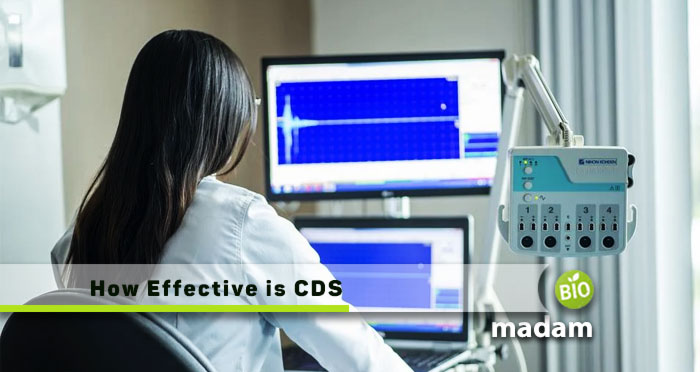Recently updated on January 31st, 2024 at 06:57 am
Clinical decision support (CDS) is a process that helps healthcare professionals make better decisions about patient care. It relies on evidence-based information to provide recommendations for treatment. In recent years, there has been a lot of debate over the effectiveness of CDS. Some experts believe that it is essential for improving patient care, while others claim that it does more harm than good. In this blog post, we will take a closer look at the pros and cons of using CDS in clinical practice.
1. What is Evidence-Based Clinical Decision Support (CDS)?
To put it simply, evidence-based clinical decision support (CDS) is the use of information technology to provide clinicians with patient-specific assessments and recommendations based on the best available evidence.
The goal of CDS is to help clinicians deliver care that is:
- Safe
- Effective
- Patient-centered
- Timely
- Efficient
CDS systems can be used to provide a variety of recommendations, including but not limited to:
- Disease screening and prevention
- Diagnosis and treatment options
- Medication prescribing
- Lab test ordering
Some common features of CDS systems include:
- The ability to automatically pull in data from the electronic health record (EHR)
- Evidence-based clinical decision rules
- The ability to generate patient-specific recommendations
- Clinical alerts and reminders
2. How does it Work in the Medical Field?

If you’re a medical professional, you’re likely familiar with the term “evidence-based medicine.” This approach to patient care is based on the latest scientific research and evidence, rather than relying on tradition or intuition.
Similarly, evidence-based clinical decision support (CDS) is a tool that helps health caregivers do their work better. Moreover, at https://www.zynxhealth.com/, you can learn about how this technology can be used in your field. That way, you can make more informed decisions about patient care.
3. What are the Benefits of Using CDS Tools in Patient Care Decisions?
When used correctly, CDS tools can help support and improve patient care decisions. There are many different types of CDS tools available, and the most appropriate tool for a particular clinical decision will depend on the specific situation. However, some common benefits of using CDS tools include:
- Improved patient outcomes: By providing clinicians with the most up-to-date evidence and clinical guidelines, CDS tools can help to ensure that patients receive the best possible care.
- Reduced variation in care delivery: CDS tools can help to reduce variation in care delivery, which can lead to improved patient outcomes.
- Increased efficiency: CDS tools can help clinicians to make more informed and efficient decisions about patient care.
- Improved communication: CDS tools can improve communication between clinicians and patients, which can lead to improved patient outcomes.
4. Are there any Drawbacks to using CDS Systems in Healthcare Settings?
In spite of the many benefits of CDS systems, there are a few potential drawbacks to consider as well. One is that, like any computerized system, CDS is only as good as the data that goes into it. If the evidence base on which the recommendations are made is weak or out-of-date, then the CDS system will be limited in its ability to support optimal decision-making.
Another potential drawback is that CDS systems can sometimes generate too much information, which can be overwhelming for clinicians and result in less effective decision-making. Finally, if CDS recommendations are not well integrated into the workflow of a healthcare setting, they may not be used as often or as effectively as they could be.
5. How can Clinicians make sure they are getting the most out of their CDS Tools?
Clinicians should make sure that they are getting the most out of their CDS tools by:
- Asking questions and seeking clarification when needed
- Being open to new ideas and ways of thinking about patient care
- Using CDS tools as a starting point for further research
- Staying up to date on the latest evidence-based guidelines
- Working with other members of the healthcare team, like pharmacists and nurses, to ensure coordinated care.
6. How can we Further Improve the Effectiveness of CDS so that it Provides even Better Patient Care Outcomes?
There is still much room for improvement when it comes to evidence-based clinical decision support. In order to provide even better patient care outcomes, we need to continue working on making CDS more effective. Some of the barriers to implementing CDS include lack of awareness, resistance from clinicians, and lack of funding.
By increasing awareness of CDS, providing training to clinicians on how to use it effectively, and securing adequate funding, we can continue to improve the effectiveness of CDS and ultimately provide better care for our patients.

In the end, evidence-based clinical decision support is a powerful tool that can help clinicians make better decisions. However, it is important to remember that CDS is only one part of the equation. Other factors, such as clinician experience and judgment, must also be considered. When used correctly, CDS can be a valuable asset in providing high-quality patient care. Also, as more and better evidence becomes available, CDS will continue to evolve and become even more effective. Good luck!

Hi, they call me Jenna, and I am also known for achieving a gold medal during my Ph.D. in science life. I always had a dream to educate people through my utmost writing hobby. So, I chose this blogging path, and Biomadam gave me this opportunity to present for them. I now stand to entertain you. Continue reading my articles & discuss if you’ve any confusion through the comment section below.

